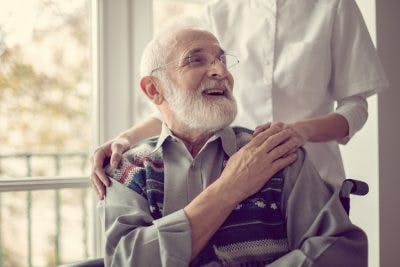While good, they completely ignore the fact that the doctors have completely failed you and allowed billions of neurons to die in the first week. My doctors allowed 5.4 billion neurons to die in the first week. I could have easily fully recovered with only 171 million dead neurons. This really becomes blame the patient for failing to recover, rather than blaming the responsible party; YOUR DOCTOR. And any use of 'All strokes are different, all recoveries are different' is just another way to blame the patient.
Is a Full Recovery from Stroke Possible? How to Push Your Potential from Flint Rehab
As a stroke survivor or caregiver, do you find yourself wondering if a full recovery from stroke is possible?Predictions can be difficult because every stroke is different and therefore every recovery is different. While it’s impossible to predict who will recover completely, there is something to be said about maximizing your chances of a full recovery.
This article will explore what it takes to maximize your chances of recovery from stroke.
Pushing for a Full Recovery from Stroke
Most stroke survivors have different goals during rehabilitation. Some are focused on walking again, for example, while others are focused on regaining hand function.But everyone seems to have the same overarching goal: to get back to normal. In fact, the very definition of recovery is “a return to a normal state of health, mind, or strength.”
The path to recovery looks different for every stroke survivor.(It shouldn't, you just use the EXACTLY DEFINED STROKE PROTOCOLS to full recovery.) While no therapist can promise a complete recovery, it’s important to set ambitious yet realistic goals.
If you set your goals too low, you may lose hope and give up before you’ve maximized your chances of recovery. But if your goals are too high, you might burn out before you’ve reached your full potential.
Therefore, it’s important to set realistic goals during stroke recovery(the realistic goal is 100% recovery if our stroke professionals would do their jobs.), and keep setting higher goals as you progress. The more you improve, the more you should adjust so that you keep inching closer to recovery.
Managing Expectations on the Path to Recovery

©iStock.com/monkeybusinessimages
This begs the question, exactly how close can you or your loved one get to a full recovery?The American Stroke Association states that 10% of stroke survivors recover almost completely and 25% recover with minor impairments.
The stroke rehabilitation field is rapidly advancing, though. With better rehabilitation facilities and home therapy tools, patients can often recover more function than they could in previous decades.
Try not to feel discouraged by a 10% chance of a full recovery from stroke. While it’s the only widely accepted statistic, it was produced at an unknown date through unknown survey criteria.(Well then, WHOM is going to get exact statistics? No measurement, no one can solve the failures to recover.)
Focusing on the statistics can deplete your hope, and hope is a valuable, essential resource during stroke recovery.
Instead, shift your focus on what you can control. There are many steps you can take to maximize your chances of a full recovery and get yourself into that supposed 10%.
How to Achieve Your Highest Recovery from Stroke
While we can’t promises that you’ll recover completely, there are steps you or your loved one can take to maximize your chances of recovery.Here are 5 steps you can take to achieve your highest recovery possible:
1. Find the Best Stroke Rehabilitation Methods for You
(Just where the fuck are those best methods? Where is that database of stroke protocols mapped to your exact objective damage diagnosis?) Every stroke survivor benefits from different rehabilitation methods. What helped one person achieve a full recovery might not work for you and vice versa.To maximize your chances of recovery, it’s important to experiment with different rehabilitation techniques until you find the one that helps you the most.
For example, mirror therapy could help one person overcome hand paralysis, but the next person might not respond as well. Instead of giving up, that person can try other therapies, like FitMi home therapy.
Also, if you hit a stroke recovery plateau, switching up your rehabilitation methods can help you overcome that obstacle. Experimentation and variety are keys to recovery.
2. Be Mindful of Compensation Techniques

©iStock.com/Wavebreakmedia
To maximize your chances of recovery, you need to stay mindful of the difference between compensation and recovery.Compensation involves performing an old movement in a new manner. Recovery involves restoring the ability to perform a movement in the same manner as it was performed before injury.
For example, let’s say that your dominant hand became impaired after stroke. Compensation would involve eating with your non-dominant hand. Recovery would involve working diligently at hand rehabilitation until you can hold a fork with your dominant hand, just like you did before stroke.
This doesn’t meant that compensation techniques are bad. Compensatory aids like canes and walkers are necessary for your safety, especially in the early stages of recovery. If your therapist asks you to use a walker, use it.
As you continue to progress, try to avoid getting stuck in a rut with your compensation techniques. Keep challenging yourself to one day grow past the need for compensation. It requires a curious mind. Keep asking yourself, “Can I do this differently today?”
3. Stay Focused on the Positive

©iStock.com/KatarzynaBialasiewicz
During Flint Rehab’s work in stroke rehabilitation, we have
heard some incredible stories, on both ends.Some stroke patients get close to a complete recovery because their therapist believed in them, and as a result, they believed in themselves. Hope inspires action, and action leads to results.
On the other hand, some patients witness limiting beliefs, like that they will live the rest of their life in a wheelchair. Limiting beliefs like that should have no place in rehabilitation. Lack of hope might discourage action, and inaction doesn’t promote recovery.
If you have heard limiting beliefs about your recovery, challenge them. Take everything you hear with a grain of salt.
Every day there are people achieving a higher recovery than their doctor predicted. Your mindset can make the difference.
4. Use High Repetition to Promote Recovery from Stroke
The best way to reach your fullest potential during stroke recovery is to focus on activating neuroplasticity: the mechanism your brain uses to rewire itself.Neuroplasticity is activated by repetition. If you want to improve your balance and gait after stroke, for example, it helps to practice leg exercises with high repetition.
Repetitive exercise is how stroke survivors – who were once told they would be in wheelchairs for the rest of their lives – get back on their feet and prove their doctors wrong.
5. Don’t Compare Your Recovery

Put your blinders on!
©iStock.com/MangoStar_Studio
Your stroke recovery timeline might
be shorter or longer than your doctor predicted. When obstacles come
your way, it’s important to stick to your regimen and never give up.©iStock.com/MangoStar_Studio
If you see others recovering faster from stroke than you, try to stay in your lane. The only person you need to be concerned about is you.
Action creates results. As long as you keep taking action, you will see results.
Your brain is working throughout your entire life to adapt and change to make functions more efficient. It certainly won’t stop now, so neither should you.
Stepping Closer to a Full Recovery from Stroke
We hope these steps help you maximize your chances of recovery from stroke.It’s important to stay positive yet realistic so that you can keep working towards recovery on a daily basis. The road to recovery can be long, but with the right mindset, you will go far.
Most importantly, believe in a higher recovery. When you believe that something positive will happen, you’re much more likely to actually experience something positive because you’ll be more inspired to take action. Good luck!
No comments:
Post a Comment